Struggling to hear your loved ones?
There are 4 main styles of hearing aids offered at London Hearing Specialist.
These can be seen below. Each style is available in different sizes and colours. Smaller hearing aids are often less visible but have reduced features and a shorter battery life due to accommodating a smaller battery pill.
Our Audiologist will be able to explain this in much greater detail during your appointment and recommend the hearing aid which is right for you.
Whether you're a home bird or a busy bee, struggling to hear your loved ones can really dampen your spirits. No matter your lifestyle, we're here to help you treasure every moment with our great range of hearing aids.
London Hearing Specialists provide a tailored solution to all clients, using the latest technology and working with the best brands.
Receiver in Canal (RIC)
Receiver in Canal hearing aids sit behind the ear. This type of hearing aid is the most comfortable and offer the best natural sound quality. However, they are not powerful enough for patients with severe hearing loss.
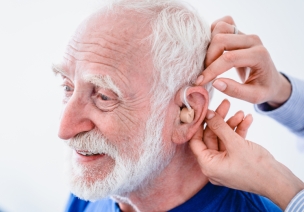
In the Ear (ITE)
In the ear hearing aids sit completely in the ear canal which makes it the most discreet style of hearing we provide, known as the "invisible hearing aid". Designed for patients with mild to severe hearing loss.
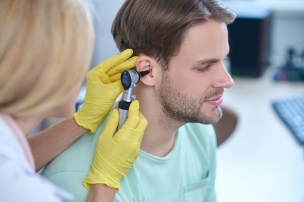
Titanium In the Ear (TIE)
Titanium in the ear hearing aids are stronger, more durable, lighter, and smaller than regular acrylic hearing aids. Designed for patients with severe hearing loss.
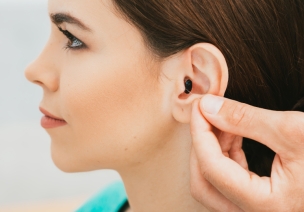
Cros
Cros hearing aids benefit patients who have a ‘bad’ ear on one side only. It enables the patient to hear sounds from both sides through their good ear.
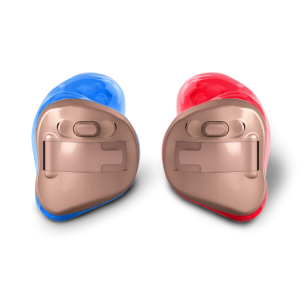
| Care Plan | Price | Hearing aids | Fitting and fine tuning with REMs | Unlimited aftercare and check-ups | Hearing aid warranty | Ear wax removal | Hearing aid batteries |
|---|---|---|---|---|---|---|---|
| Bronze ★★ | £2,495 (£1.31 per day) |
Bronze range | ✔ | ✔ | 2 years | ✘ | ✘ |
| Silver ★★★ | £2,895 (£1.53 per day) |
Silver range | ✔ | ✔ | 3 years | ✘ | ✘ |
| Gold ★★★★ | £3,295 (£1.75 per day) |
Gold range | ✔ | ✔ | 4 years | ✘ | ✘ |
| Platinum ★★★★★ | £3,695 (£1.91 per day) |
Platinum range | ✔ | ✔ | 5 years | ✘ | ✘ |
| Diamond ★★★★★ | £4,995 (£2.64 per day) Includes Complimentary Accessory and Lifetime Aftercare |
Diamond range | ✔ | ✔ | 5 years | Free for 5 years | Free for 5 years |
Finance Options - 60 Day Money Back Guarantee
London Hearing Specialist offers finance on all hearing aids. Finance is subject to status and affordability checks, terms & conditions apply. Credit is provided by Buyline authorised and regulated by the Financial Conduct Authority.
ID will be required for a credit application. Minimum 10% deposit required. There are no arrangement fees or hidden extras. Your monthly payment will begin four weeks after your fitting appointment. You can settle any outstanding amount on your balance early without penalty.
If after 60 days you are still not satisfied with your hearing aids and the benefits they provide hand them back to our audiologist for a full refund.
Find Our Specialised Audiology Clinics
Explore our seven dedicated clinics, each uniquely equipped to provide exceptional, individualized audiology care tailored to meet your hearing and balance needs.
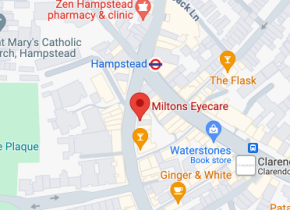
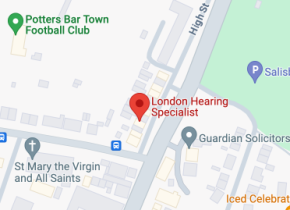
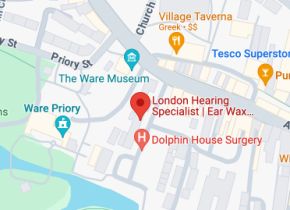
Hearing Aids FAQ's
- How do hearing aids work?Hearing aids have three basic components: a microphone, an amplifier, and a speaker or receiver. The sound waves pass through the microphone and are converted into electrical signals before being sent to the amplifier. Finally, the amplifier sends the sounds to your ear through a tiny speaker.
- Who can benefit from hearing aids?Hearing aids work best for people with sensorineural hearing loss, which results from damage to the inner ear or auditory nerve. Sensorineural hearing loss can be caused by ageing, infection, disease, or certain medications.
- Are there any complications regarding hearing aids?Hearing aids can improve your hearing by amplifying sounds in your environment and maximising your hearing potential. However, they can have some drawbacks, such as the time it takes to get used to them, the need to see our audiologist for programming adjustments if you have difficulty in certain environments, and the cost of the aids.
- How long do hearing aids last?The best thing about hearing aids is that you don't have to buy new ones. Instead, if your hearing changes, the audiologist can adjust the device's settings.
How Do You Know You Need Hearing Aids?
Getting the proper hearing aids is a rigorous process that involves multiple steps. If you’re not sure whether you need a hearing aid, here are a few steps you should follow:
Have a hearing test
If you suspect hearing loss, it's a good idea to have a diagnostic hearing test in London. This can give you an accurate measure of your hearing loss and how a hearing aid might help.
Having your ears checked can identify other problems that can affect your hearing, such as wax buildup, infection, or injury.
Talk with a specialist about your options
It is common for people to underestimate their perceived hearing loss, and it's only sometimes that your hearing loss may require a hearing aid. You should consider meeting with an audiologist to help you diagnose and treat hearing disorders. Our audiologists will help you select and fit and provide hearing aids.
Besides giving you a physical test, the audiologist will also take your medical history and perform further appropriate diagnostic tests. You can discuss your options with your specialist to find the best and most convenient hearing aid for you.
Find the correct type of hearing aids
Hearing aids are not all the same. They can be very different, with some types fitting behind your ears while others fit inside the ear canal. Some types can connect wirelessly to your phone, filter out background noise, and run on rechargeable batteries. Making the right choice is crucial because the hearing aid will affect your quality of life. We're here to make the choice much easier and more informed.
Importance of Hearing Aid Fitting
There's more to getting a hearing aid than getting the right one. Fitting is also an essential part of the process. In addition to the audiologist assessing your hearing, they will ask extensive questions to understand your lifestyle, communication issues, and needs. Part of the assessment is figuring out where the problem is coming from if it is a medical issue requiring a physician's treatment.
The most important part of hearing aid fitting is customising the physical fit. Customising the acoustics that end up in the ear is part of the process. A hearing test helps determine the loss of hearing and where the problems are coming from.
A microphone is placed in the ear near the canal during the fitting process, and the hearing aid output is measured. This step is important for paediatric patients because their tiny ear canals can damage their hearing if the hearing aid fitting isn't done right.
Getting Used to Your Hearing Aid
After acquiring your hearing aid, the next big step is getting used to the hearing aid. Getting used to a hearing aid takes time. You may notice that your listening skills improve gradually as you become accustomed to the amplification. Even your own voice may sound different when you wear the hearing aid.
Here are some points to keep in mind when you first use a hearing aid:
Hearing aids won’t return your hearing to normal
It is crucial to have practical expectations regarding hearing aids. Hearing aids can't restore normal hearing but can improve hearing by amplifying soft sounds.
Give yourself time
It takes time to get used to your new hearing aid. But the more you use it, the faster you adjust to amplified sounds. Be kind to yourself and give yourself time.
Practice using the aid in different environments
The amplified sounds with the hearing aid will sound different in different places. Trying the hearing aid in different environments makes getting used to sounds from different backgrounds easier.
Seek support and stay positive
A willingness to practice and get used to your hearing aid requires the support of your family and friends, which can also determine your success with the new hearing aid. You may also consider joining a support group for people who have hearing loss or are new to hearing aids.
Keep up with the follow-ups
The follow-ups are just as important as the initial visit. Your specialist will include your follow-up schedule. You should take advantage of this for any adjustments and to ensure that your new hearing aid is working as expected.

















